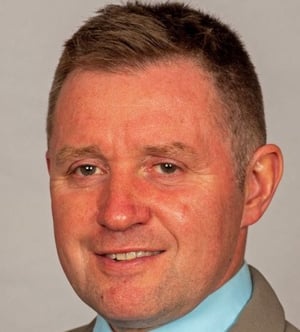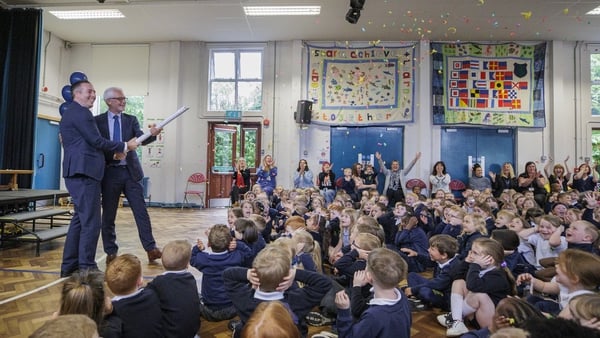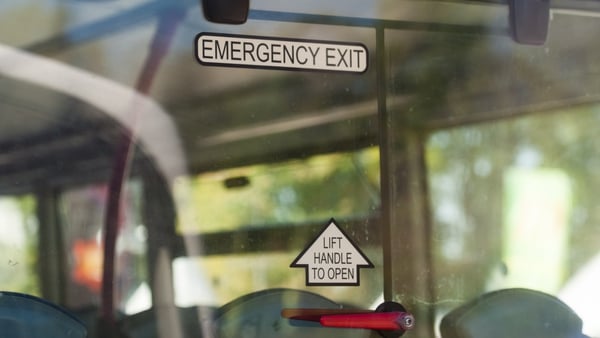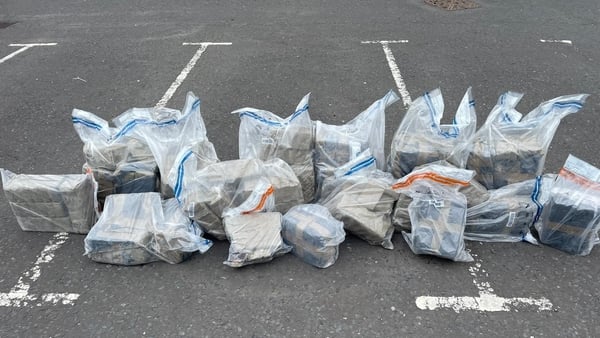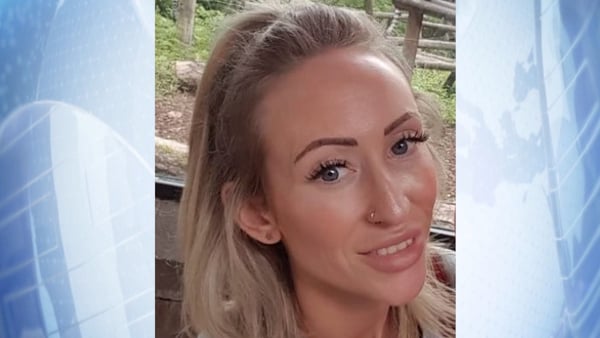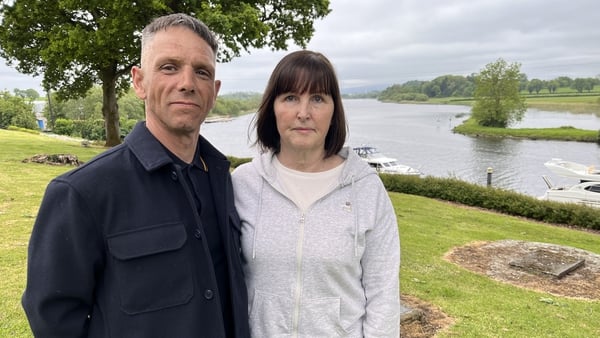Northern Ireland's former First Minister Arlene Foster has said the most trying period of the pandemic for her was after the Bobby Storey funeral in June 2020 which was attended by Sinn Féin ministers.
Their attendance at the mass event, at a time when there were Covid funeral protocols in place, caused controversy.
Giving evidence to the UK Covid Inquiry in Belfast, the former DUP leader said that some within her own party had been pressing her to "push the nuclear button" and collapse the executive.
She said she felt it wasn't the right thing to do in the middle of a health crisis.
She described it as a "moment of maximum risk" when she had to manage pressures both inside and outside her party.
Further evidence was also heard about the November 2020 Executive meeting when the DUP used a cross-community voting mechanism to block the extension of restrictions.
The inquiry was told the Executive had been provided with modelling by Stormont's Chief Medical Officer which showed further measures were needed to protect Northern Ireland's struggling health service from being "overwhelmed".
In the weeks following the executive meeting there was what was described as a "incoherent" approach with short periods of lockdown following by periods of opening up.
The result, the inquiry heard, were some of the highest rates of infection in the entire pandemic.
The inquiry also heard about a UK-wide pandemic planning meeting - a so-called COBRA meeting - to which the First and Deputy First minister had been invited in February 2020.
Mrs Foster had decided that Health Minister Robin Swann should attend on the Executive's behalf.
The meeting clashed with an "away day" other ministers had arranged to work on a programme for government and budget for the incoming executive.
It turned out that the "away day" did not overlap with the COBRA meeting and Mr Swann was able to attend remotely.
The inquiry was told that the COBRA meeting had been attended by high level representatives of the British government and other devolved administrations.
Mrs Foster conceded that she and the deputy first minister should have attended.
"I fully accept that we should have been at that meeting," she said.
'Nadir of politics in Northern Ireland'
A series of Executive meetings over four days in the autumn of 2020 when Stormont ministers were divided over the extension of Covid-19 restrictions was the "nadir of politics in Northern Ireland", the inquiry was told.
Counsel to the Inquiry Clair Dobbin KC made the remark as she questioned Arlene Foster about a contentious period in November that year when there was a disagreement over the best way forward.
The DUP engaged a cross-community voting mechanism, designed to protect minority rights, to block the extension of some restrictions.
Ms Foster said the context of what was happening at the time was critical to a proper understanding of her party's position.
She told the inquiry that by that period the public was fatigued with lockdowns and restrictions.
People had also reacted badly to the decision of Sinn Féin ministers to attend a large republican funeral in June, she said.
"Relationships were very poor at that time, I think you can see that from the minutes," Ms Foster said.
"The deputy first minister had given an interview saying that we can't have continuous lockdowns, we need to find a way to deal with that.
"We had had a discussion at the Executive around close contact workers, hairdressers, beauticians, people who were pretty low paid.
"At the time she had sympathy for trying to do something for those people because, some of those people if they didn't work they didn't get paid.
"It was that context that we went into the meeting believing that we could give some hope and some relief to those people and then the story changed once we started the meeting."

Sinn Féin's Michelle O'Neill, is likely to form a central plank of her evidence
Ms Foster was shown messages sent by the Chief Medical Officer, Michael McBride, during this failure to find consensus.
In one he told a colleague: "Hang their heads in shame. Tell that story to the wife and two boys of a 49-year old who said goodbye to their father on Facebook on Friday. There will as a consequence be more."
In another message he described the outcome of the lengthy discussions as "Politics at its worst."
Arlene Foster said Dr McBride, like everyone else, was "exhausted" by that stage.
"He worked so diligently for the Executive and the people of Northern Ireland during this period.
"We had a good working relationship and it saddens me greatly to see those text messages."
The inquiry heard that it was mid-March before the Executive got a handle on the scale of the pandemic and its potential impact and began addressing it in a comprehensive cross-departmental way.
Until that point it was left to the Department of Health to lead and update the Executive on the situation.
Ms Foster now works as a presenter on GB News.
In 2020, she was First Minister and joint leader of the Stormont Executive alongside Michelle O'Neill of Sinn Féin.
The incident damaged political relations between the two leaders.
They had been holding regular joint news conferences to update the public up until that point.
Ms Foster withdrew from those amidst public anger over Sinn Féin's attendance at the funeral.
Mrs Foster was also asked about controversial remarks made by DUP colleague and then Stormont Agriculture Minister Edwin Poots during the pandemic.
Mr Poots had suggested that Covid transmission rates were considerably higher in nationalist areas.
Mrs Foster was asked whether, as his party leader, she had tried to sanction him or stop him making similar comments again.
"Edwin is very much his own person in terms of his opinions.
"However, it's not a view I shared and he knew it was not a view I shared and that it was not a view shared by the other DUP ministers either."
PSNI officer to give evidence over pandemic response
This afternoon a former senior police officer will give evidence on the PSNI response to the pandemic.
A controversial episode which is likely to be raised is the arrest of a man, injured in a loyalist massacre, at a commemoration in Belfast in February 2021.
Two young constables were disciplined, but a high court judge later ruled that had been unlawful and that there had been political interference in the process, after Sinn Féin protested strongly.
Controversy over the ruling ultimately led to the resignation former PSNI chief constable Simon Byrne last year.
